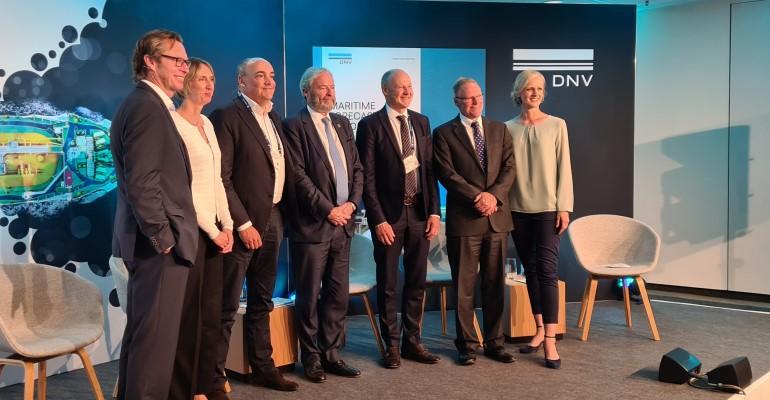Speaking at the launch of the DNV publication Maritime Forecast to 2050 at SMM in Hamburg, Chairman Global Shipping, Logistics & Offshore, Citi and Chairman Poseidon Principles, Michael Parker, said that increased regulatory demands will change the profile of the shipping industry to the detriment of smaller shipowners.
“The bigger transition will lead to more consolidation because of the whole scale of net zero and the technology required. There is no god-given right to be a shipower, whatever size you are. Many small shipping companies were big shipping companies at one point,” said Parker
The panel was focussed and the industry’s transition to zero carbon over the coming decades, an undertaking that will require huge amounts of capital and capacity for data gathering, reporting and analysis. All of that investment will inherently involve risk, said Parker.
“The financial sector is going to look for a return, and I’m afraid it’s not going to get a return ultimately from smaller shipowners; the economics of capital and investing are not going to work.”
Cargo owners and financiers alike will oush the industry to decarbonise as they begin to account for and report on their scope three emissions.
Parker gave one example of the changing relationship between cargo owners and shipowners: Cargill said in the past it was willing to pay upfront the investment in energy saving and emissions-cutting retrofits for smaller bulker owners if banks would lend to Cargill to finance the retrofit. The charterer’s size and offer of employment for the vessels helped to reduce risk to financiers, and both charterer and environment benefit from a more efficient vessel.
“I think that’s probably the future model; if you can show that through retrofit you will extend the life of the vessel and reduce emissions, money will be made available.”
Sveining Oftedal, Specialist Director, Norwegian Ministry of Climate and Environment, said: “There will always be operators in the lower end of the market. It is happening today and it will happen in the future, in all types of industries. We can’t change that, it’s how business is.”
Rolf Habben Jansen, CEO, Hapag-Lloyd and Co-Chairman of the World Shipping Council, said: “If you are a really innovative player focused on a certain niche you can create a scale in a smaller market, but looking at the deepsea market for container shipping, over time it is going to be more difficult for smaller players to survive.”
Copyright © 2024. All rights reserved. Seatrade, a trading name of Informa Markets (UK) Limited.
Add Seatrade Maritime News to your Google News feed.  |

